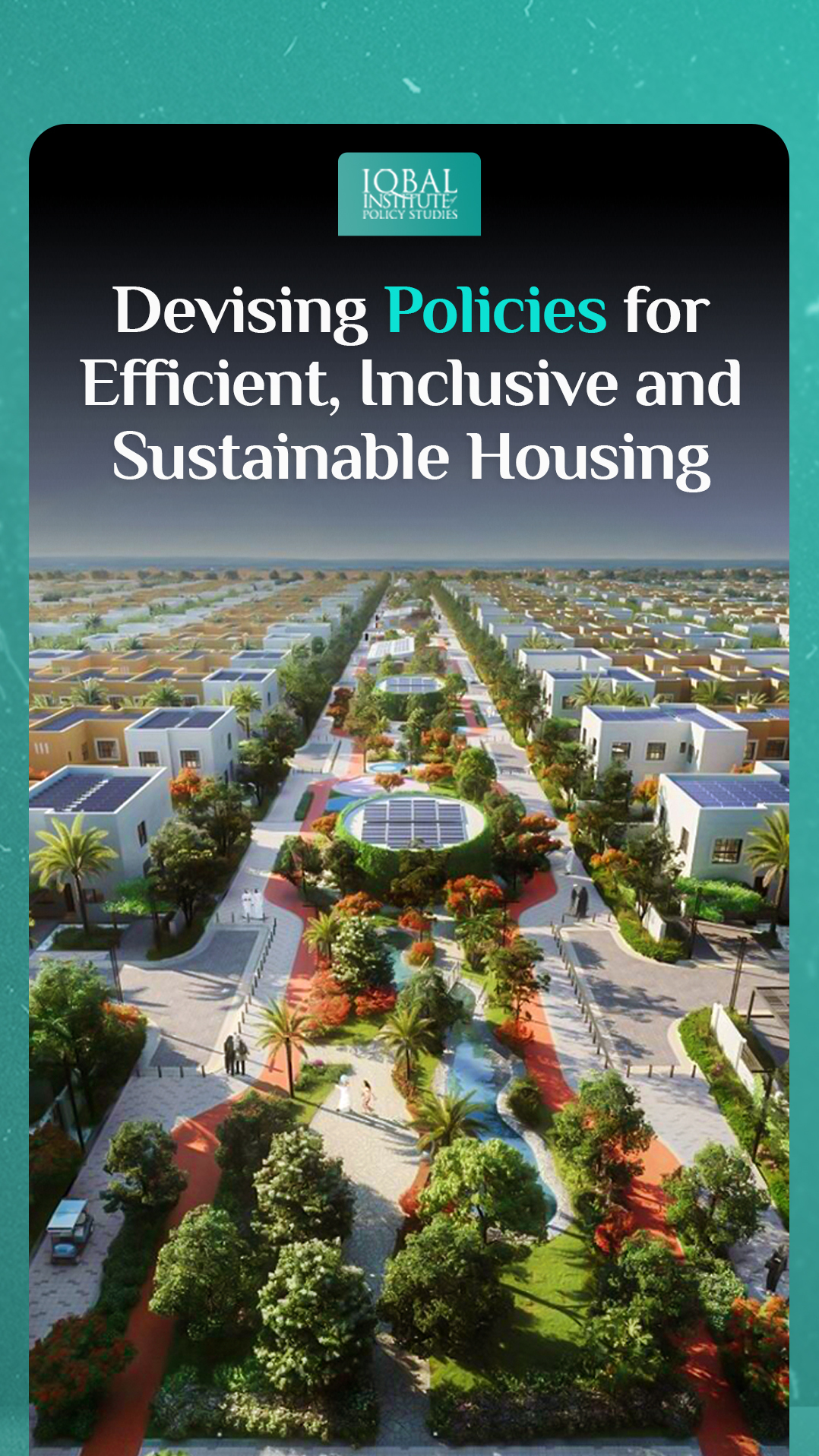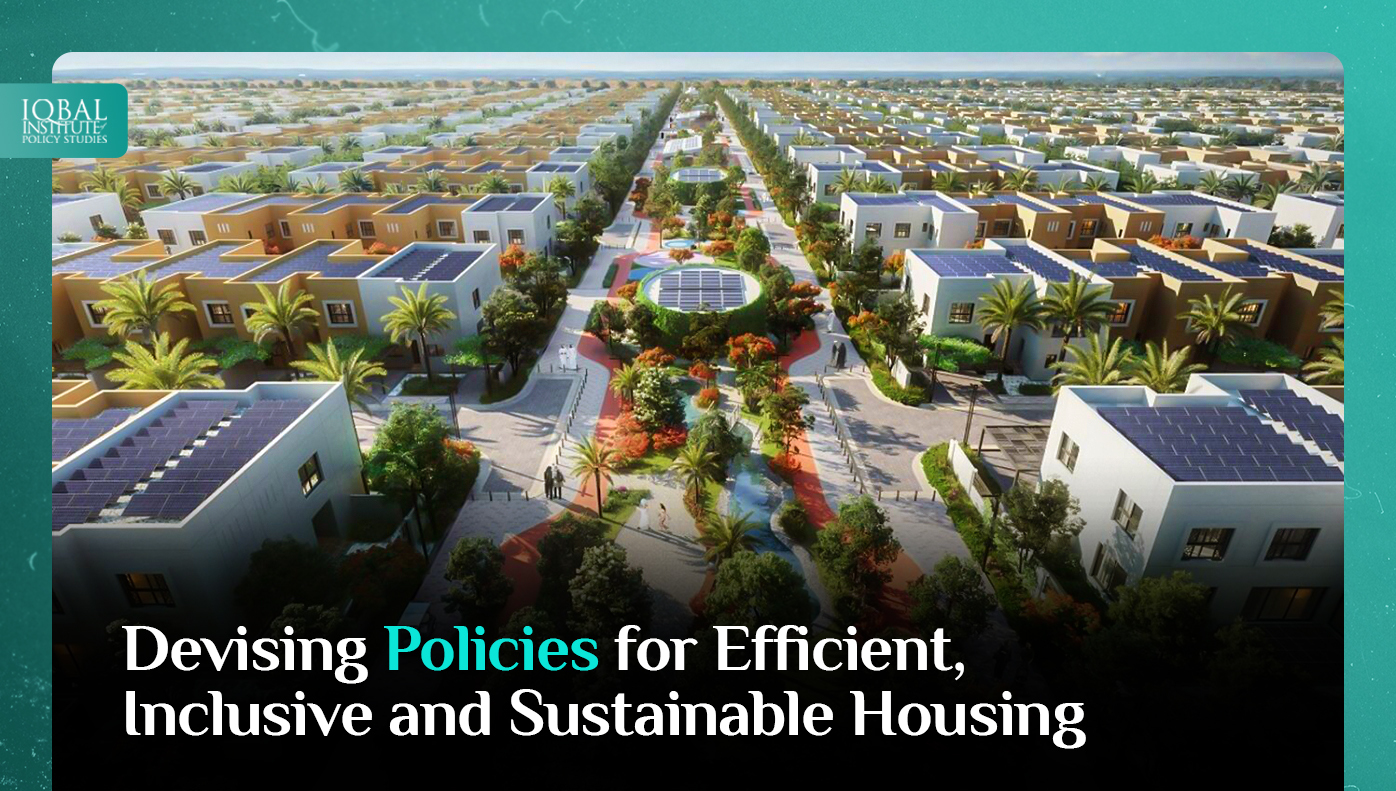Housing has become a growingly economic, social, and environmental challenge for developing countries. Increasing housing prices and rents have decreased affordability and resulted in a social exclusion that has increased inefficiencies in housing markets which have adverse consequences for the economy, including macroeconomic instability and impaired labour mobility. Moreover, the affordability challenge has deepened its roots in the housing sector, causing an increasing demand and supply gap. Along with the affordability and efficiency challenges, unsustainability is the major factor deterring the country’s housing sector.
Addressing these three interconnected challenges needs policy action across various domains while recognising complementarities and trade-offs among policy objectives. Policies include new construction that needs to meet high environmental standards and should contribute to developing inclusive, socially mixed neighbourhoods whilst avoiding social and economic segregation. Land-use policy reforms can remove obstacles to expanding supply in response to demand pressures and consequently help mitigate house price increases in high-demand areas. Efficient houses must be built in a way that respects resources and could last long in quality systems, which is said to be the way forward in achieving a low carbon footprint and a sustainable environment. These houses are constructed from high-performance, energy-saving materials with energy-maximising building orientations.
A well-framed housing policy that aims at sustainability from all angles, including environment, social and economics, is required. The environmental sustainability of housing refers to construction which is energy efficient, comfortable for living and has an efficient waste disposal system and an alternative energy source. Sustainable housing maximises the general well-being of houses and minimises environmental costs. In the case of Pakistan, the country lacks sustainability consideration in its housing policy and even lacked a housing policy till 2001. The policy remains unchanged even 19 years after its formulation, despite changing the paradigm from millennium development to sustainable development. The current approaches need to be revised to include the sustainability element. The concerned authorities should revise regulations to ensure that new housing units must be developed to provide sustainability elements from social, economic and environmental perspectives.



Leave a Reply